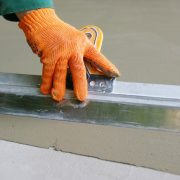
In the complex world of real estate, the home inspection serves as a pivotal moment in the buying process. This critical step can significantly influence a buyer’s decision, shape negotiations, and ultimately determine the success of a transaction. Understanding the ins and outs of home inspections not only empowers buyers but also benefits sellers and real estate professionals alike.
What is a Home Inspection?
A home inspection is a thorough assessment of a property’s condition, typically conducted by a licensed and certified inspector. The purpose of this evaluation is to identify any potential issues, from structural integrity to safety hazards, and to give buyers a clearer picture of what they are purchasing. Inspections usually cover key components such as the roof, foundation, plumbing, electrical systems, HVAC, and major appliances.
Why Home Inspections Matter
- Uncover Hidden Issues
Many potential problems may not be visible during a casual walk-through of the home. An inspector’s trained eye can spot signs of water damage, mold, pest infestations, or faulty wiring that a buyer might miss. Identifying these issues before finalizing a purchase can save buyers from expensive repairs down the line.
- Negotiate with Confidence
Once the inspection is complete, the buyer receives a detailed report outlining the condition of the home. This document can be a powerful tool in negotiations. If significant issues are discovered, buyers can request repairs, seek a reduction in the purchase price, or even decide to walk away from the deal. In a competitive market, being informed about the home’s condition can provide leverage in negotiations.
- Plan for Future Maintenance
A thorough inspection can also serve as a roadmap for future maintenance and repairs. Understanding the current state of a home allows buyers to prioritize projects and budget accordingly. For example, if the inspection reveals an aging roof or outdated plumbing, buyers can plan to address these issues before they escalate.
The Home Inspection Process
Understanding the home inspection process can demystify it and help buyers and sellers prepare. Here’s what typically happens:
- Choosing an Inspector
Selecting a qualified home inspector is critical. Buyers should look for someone who is licensed, insured, and experienced. Reading reviews and seeking recommendations can lead to a reputable inspector who understands local building codes and common issues in the area.
- Scheduling the Inspection
After an offer is accepted, buyers should schedule the inspection as soon as possible. Ideally, the inspection should take place within the inspection contingency period outlined in the purchase agreement. This allows buyers to address any issues before moving forward.
- The Inspection Day
On the day of the inspection, buyers are encouraged to attend. This provides an opportunity to ask questions, gain insights, and understand the inspector’s findings firsthand. The inspection can last anywhere from two to four hours, depending on the size of the home and the complexity of its systems.
- Receiving the Report
After the inspection, the inspector will provide a detailed report that includes photographs and descriptions of any issues found. This report serves as a critical reference point for negotiations and future maintenance.
Common Findings in Home Inspections
Home inspections can reveal a variety of issues, some of which are more common than others. Here are a few typical findings:
- Makler Ravensburg: When it comes to finding the right property, a Makler Ravensburg offers invaluable expertise. These agents understand Ravensburg’s real estate trends and provide personalized services, guiding clients through the entire process, from initial search to final sale.
- Roof Problems: Missing shingles, leaks, or signs of wear can indicate that a roof may need repair or replacement.
- Electrical Issues: Outdated wiring, insufficient outlets, or unsafe electrical panels can pose safety risks and may require updates to meet current codes.
- Plumbing Concerns: Leaks, low water pressure, or old piping can lead to costly repairs and affect the home’s overall functionality.
- Structural Problems: Cracks in the foundation, uneven floors, or signs of settling may indicate serious structural concerns that need immediate attention.
- Pest Infestations: Evidence of termites, rodents, or other pests can be a red flag for buyers and may require professional extermination.
The Impact on Sellers
For sellers, understanding the importance of home inspections can help them prepare their property for sale. Conducting a pre-listing inspection allows sellers to address issues proactively, potentially making their home more appealing to buyers. By resolving problems ahead of time, sellers can avoid surprises during the buyer’s inspection and enhance their negotiating position.
Conclusion: A Key Component of Real Estate Transactions
In the realm of real estate transactions, home inspections play an indispensable role in ensuring that buyers make informed decisions. By uncovering hidden issues, facilitating negotiations, and aiding in future planning, inspections empower buyers and enhance the overall transaction process. Whether you’re a buyer or a seller, appreciating the significance of home inspections can lead to smoother transactions and a better understanding of property value and condition.
Investing time and resources into a thorough home inspection is a wise decision that pays dividends in peace of mind and financial security.











